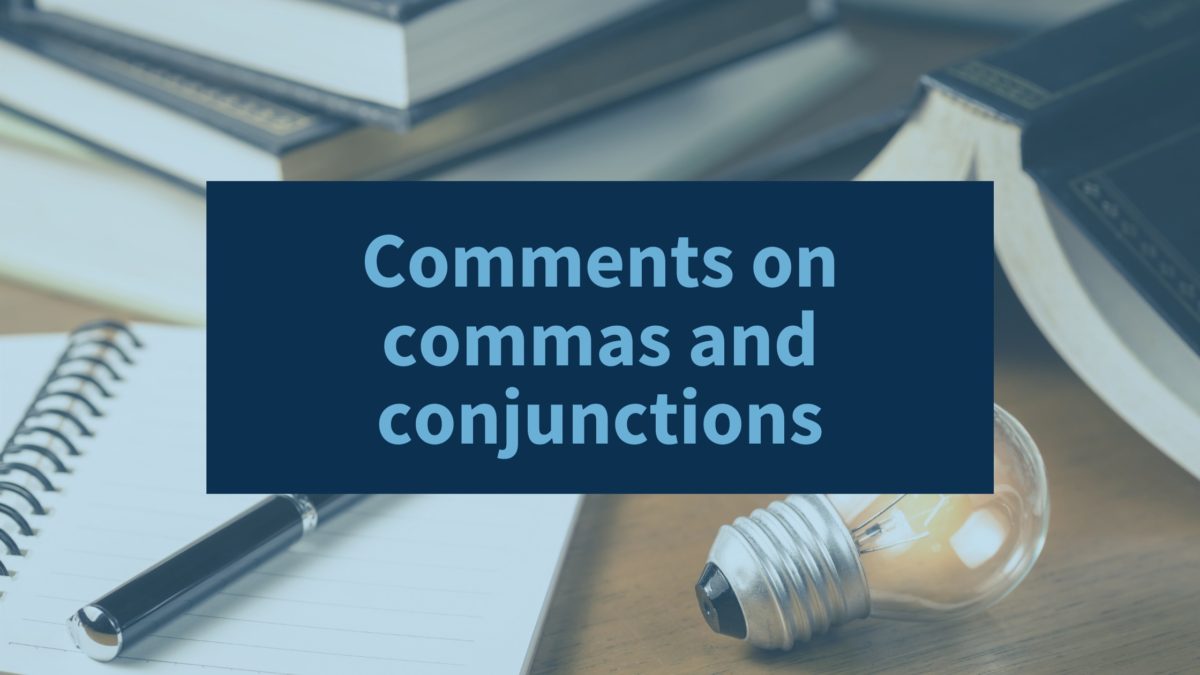Here’s the thing about being a professional editor: You learn, over time, there are mistakes people make in their writing that are so minute, most people never notice them. But one of the joys of proofreading is finding these tiny errors and correcting them, even if it’s not something readers will pick up on. We want the novels that cross our desk to be absolutely spotless, which means hunting down these minute missteps and wiping them clean. So today I’d like to write about one of the most commonly overlooked grammatical issues we see during our book editing: comma splices. Commas are such tiny, wishy-washy little buggers, many people assume they can be used or omitted at will. Not so! There are some hard and fast comma rules, so let’s review the one that trips up even the cleverest of indie authors: Commas splices If you are using a conjunction to connect two clauses, do you need a comma? Sometimes you do, sometimes you don’t. You DO need a comma if the clauses are independent. Basically, if the clauses on either side of your conjunction both have a subject and and a verb, use a comma to separate them You DO NOT need comma if one of the clauses is dependent, meaning it borrows the subject from another clause. Here are some examples:
The monster enjoyed the taste of human flesh, but she had a heart of gold nonetheless. The villagers feared the monster and could not comprehend her soft side.The first of these very true sentences needs a comma, because the conjunction (“but”) separates two independent clauses. The first clause has a subject and verb (“monster” and “enjoyed”), and the second also has a subject and verb (“she” and “had”). The second sentence does not need a comma, because the conjunction (“and”) separates two dependent clauses. The first clause has a subject and verb (“villagers” and “feared”), but the second only has a verb (“could”) and refers back to the subject from the first clause. Complex? Yes, but once you get the hang of it, it becomes second nature. Now, there’s one little word of warning: Be careful with “as”! Technically, it only acts as a subordinating conjunction when it’s being used as a synonym for “because,” not when it’s working as a synonym for “while.” So:
You should make me a cup of tea, as I’m dying of thirst.
vs.
You should make me a cup of tea as I work on my NaNoWriMo manuscript.It might seem complicated, but it’s the stuff we professional novel editors thrive on!

